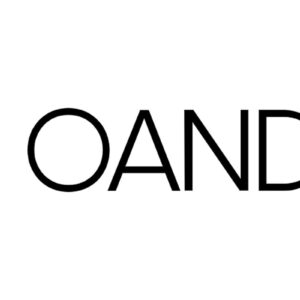Contents
Most successful CFD traders are veteran traders with a wealth of experience and tactical acumen. When the position is closed, the trader must pay another 0.01% commission fee of £10. The trader will pay a 0.1% commission on opening the position and another 0.1% when the position is closed. For a long position, the trader will be charged a financing charge overnight (normally the LIBOR interest rate plus 2.5%).

Suppose that the share price of GlaxoSmithKline increases to £24.80 in 16 days. The initial value of the trade is £10,011 but the final value is £10,564.80. The costs of trading CFDs include a commission , a financing cost , and the spread—the difference between the bid price and the offer price at the time you trade.
Similarities of CFDs and Forex
While the potential rewards may be high, the risks should not be ignored. Without this protection in place, traders could quickly find themselves in a lot of debt if they don’t manage their risks properly. As such, it is essential to trade carefully and always keep an eye on your account balance. If you do end up owing money to your broker, you may be able to negotiate a payment plan, but this will likely come with high-interest rates. In short, negative balance protection is an important consideration for all CFD stock traders. CFD trade can make you a lot of money, but on some occasions, investor accounts lose money as well.
How do forex traders pay tax?
All expenses incurred from your forex trading must be deducted from the gross income of the trading to calculate the taxable profit from your forex trading. The profit made will be or must be added to your other income earned and then applied against the tax tables to calculate what your tax payable is.
Therefore assets in the security and commodity segments of your main account, and non-CFD assets held in the F-segment, are not part of your capital at risk for CFD trading. However, all cash in the F-segment can be used to cover losses arising from CFD trading. IBKR automatically transfers funds from your main account to the F-segment of your account to fund initial margin requirements for CFDs. Factor certificates employ a daily leverage factor that multiplies the daily performance of the underlying instrument. Unlike knock-out warrants and mini-futures, factor certificates do not have a knock-out barrier.
How Do CFDs Work?
The risks of loss from investing in CFDs can be substantial and the value of your investments may fluctuate. You should consider whether you understand how this product works, and whether you can afford to take the high risk of losing your money. CFDs are traded on margin meaning the broker allows investors to borrow money to increase leverage or the size of the position to amply gains. Brokers will require traders to maintain specific account balances before they allow this type of transaction. A contract for differences is a marginable financial derivative that can be used to speculate on very short-term price movements for a variety of underlying instruments.
Do CFD brokers lose money?
Disclaimer: CFDs are complex instruments and come with a high risk of losing money rapidly due to leverage. 76% of retail investor accounts lose money when trading CFDs with this provider. You should consider whether you understand how CFDs work and whether you can afford to take the high risk of losing your money.
GNI and its CFD trading service GNI Touch was later acquired by MF Global. They were soon followed by IG Markets and CMC Markets who started to popularize the service in 2000. Subsequently, European CFD providers such as Saxo Bank and Australian CFD providers such as Macquarie business and financial news Bank and Prudential have made significant progress in establishing global CFD markets. AvaTrade offers you the opportunity to BUY orSELL on all Bitcoin Cash trades. You can use your preferred trading strategies regardless of which way the currency is moving.
Leading global indices
Providers of contracts for difference often target potential investors through magazine advertisements, newspaper supplements, prime-time television spots and websites. Although CFD trading can offer investors the opportunity to speculate on a wide range of financial markets, it also carries a number of risks. One of the biggest CFD trading risks is that of losing money, which can happen if the price of the underlying asset moves against the position that has been taken. Another risk is that of counterparty risk, which is the risk that the CFD provider will not be able to meet their obligations under the contract. This could happen if the provider becomes insolvent or otherwise unable to meet their financial obligations.
Is CFD trading difficult?
No, CFD trading isn't easy, even for professional traders. CFDs are complex investment products that present a high risk of capital loss, and therefore, you should look into risk-management controls in order to minimise this risk as much as possible.
An increasing number of traders would like 24/5 access to major markets which, although fairly typical in Forex, is less usual with CFDs. As we have seen, liquidity is important for all tradable assets so that transactions can be completed as quickly and cost effectively as possible. However, it’s important to remember that stock CFDs are complex instruments, have a high risk of losing, and can be difficult to understand.
Benefits of index CFDs
Before trading stock CFDs, it’s important to do your research and understand the risks involved. Investors should also be aware of the fees & commissions charged by brokers for CFD trades. These fees can eat into profits, so it is important to compare different brokers before deciding arena carbon core fx review where to trade. In addition, some brokers may also charge hidden fees, so it’s important to read the fine print before signing up for an account. However, by doing a bit of research beforehand, investors can make sure that they are getting the best deal possible while trading CFDs.
- Each stock in the index is given an equal weight, no matter how big the company is or how famous the founder is.
- Brokers will require traders to maintain specific account balances before they allow this type of transaction.
- Indeed, the European Securities and Markets Authority has placed restrictions on CFDs to protect retail investors.
- The next day the process is repeated, referencing the prior day’s underlying close.
- You will receive either the corresponding number of shares or a cash settlement reflecting the value of the underlying instrument on the maturity date.
The HK50 or Hang Seng is a free float adjusted market capitalization weighted index. The HK50 measures the performance of the 50 largest companies listed on the Hong Kong Stock Exchange and it is often used as a market benchmark for the economy of Hong Kong. The Dow Jones is a composite index calculated as a price-weighted average. The index is composed of the 30 most valuable stocks on the New York Stock Exchange.
A contract for difference is a type of financial derivative that allows traders to speculate on the price movement of underlying assets without actually owning the asset itself. CFDs are traded on margin, which means that traders only need to put down a small deposit to open a position. This makes CFDs an attractive proposition for many traders, as they can lever up their positions to gain a larger exposure to the market. However, it is important to remember that leverage can both increase your profits and amplify your losses, so it is important to use it wisely. US citizens are currently allowed to trade CFDs, although there are some restrictions in place regarding leverage and margin requirements.
- Silver, for example, is traded on commodity exchanges in lots of 5000 troy ounces, and its equivalent contract for difference also has a value of 5000 troy ounces.
- One of our clients’ favourite MT4 charting tools, automatically scanning markets to deliver price action alerts, analysis, forecasts and more.
- It means there are no overnight financing costs or daily adjustments to your position, the underlying Futures price already accounts for these factors.
- Investors holding a losing position can get a margin call from their broker requiring the deposit of additional funds.
- From beginners to experts, all traders need to know a wide range of technical terms.
CFDs enable you to obtain full exposure to an underlying instrument at a lesser price than buying the underlying instrument. The ESMA Decision imposes a ban on monetary and certain types of the world is running out of oil here’s how to be prepared non-monetary benefits related to CFD trading. IBKR may in certain circumstances agree to reclassify a Retail Client as a Professional Client, or a Professional Client as a Retail Client.
Now every country has a benchmark stock index, considered the ‘go-to’ price to judge that country’s market performance. A rebate payment cannot be used to satisfy your total margin requirement, until such a time as the rebate payment has been credited to your account. Please note that normal rules and procedures in relation to account close-out will continue to apply and you should not rely on a rebate payment to prevent an account close-out. If you did decide to hedge your risk in this way, any drop in the value of the ABC Limited shares in your portfolio would be offset by a gain in your short CFD trade.

As such, it is essential to use proper risk management when trading stock CFDs. 75.2% of retail investor accounts lose money when trading CFDs with this provider. First, both types of trading involve a similar trade execution process. Traders can easily enter or exit the market in both rising and falling markets. Second, both CFD trades and Forex trades are executed on the same platform, using similar looking charts and pricing methods.
- The total loss is applied as the maintenance margin requirement if it is greater than the standard requirement for the combined Stock and CFD positions.
- Compared to CFDs, option pricing is complex and has price decay when nearing expiry while CFDs prices simply mirror the underlying instrument.
- The main risk is market risk, as contract for difference trading is designed to pay the difference between the opening price and the closing price of the underlying asset.
- 63.7% of retail investor accounts lose money when trading CFDs with IBKR.
- Cash markets can operate on a regulated exchange or OTC (over-the-counter).
Unanticipated special dividends on the underlying instrument can lead to a price decline in the related warrants. In addressing this topic, a differentiation has to be made between historical and implied volatility. Implied volatility reflects the volatility market participants expect to see in the financial instrument in the days and months ahead. If implied volatility for the underlying instrument increases, so does the price of the warrant.